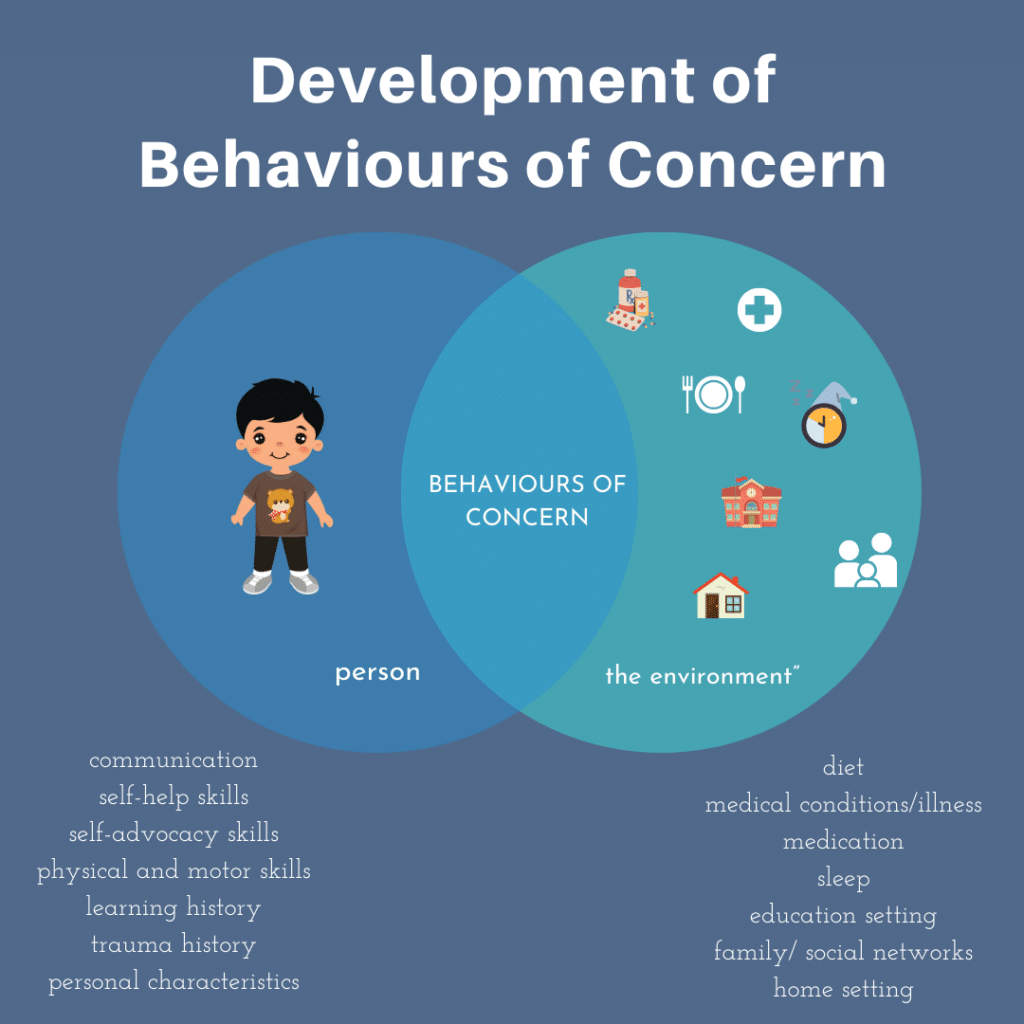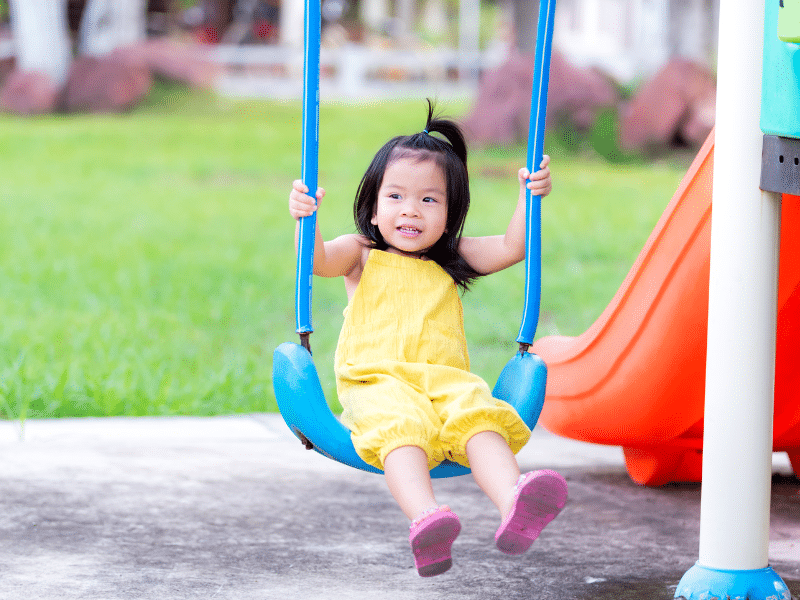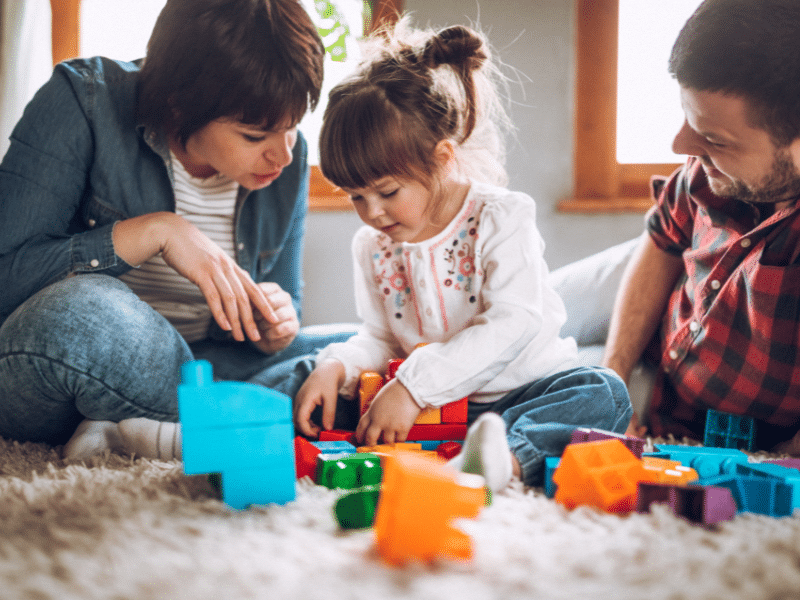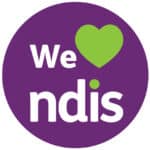Positive Behaviour Support & Therapy
Witnessing your child face difficulties is never easy, especially when they show behaviours of concern that could harm themselves or others. The ripple effect of these behaviours on your child's development and family harmony is profound.
Positive Behaviour Support (PBS) is a compassionate, evidence-based approach used to improve quality of life and to reduce behaviours of concern.
To the Moon & Back has a team of behaviour support practitioners in Sydney, ready to support your family. We support families with children up to the age of 12. We are registered for funding under the NDIS Improved Relationships support category.
What is the difference between "support" and "therapy"?
Our approach combines Positive Behaviour Support and Therapy to improve your child's quality of life.
In the Positive Behaviour Support model, behaviour is how your child communicates their unmet needs. Once we understand these needs, we collaborate with your family to create a plan to help your child get their needs met.
Adjustments to the environment and interactions can make a significant difference. These strategies are outlined in a positive behaviour support plan tailored to your child.
In addition, we teach your child the essential skills to enhance their life. A qualified positive behaviour support practitioner and other allied health therapist can work directly with your child, or you might prefer our parent-implemented models. Depending on your child’s needs and funding availability, they may access one or both support and therapy.
Our team will partner with you to determine the best support package for your child and your family.

Behaviours of concern are not the fault of the child or of the parent/caregiver. They are not caused by a particular diagnosis or condition. They develop as a result of a complex interaction between personal factors and the environment.
Does my child need Positive Behaviour Support & therapy?
Recognising the need for support can often be the first step towards positive change for your family. If you’ve noticed patterns in your child’s behaviour that disrupt daily life, learning, or interaction with others, then it might be time to consider professional support.
Positive Behaviour Support & therapy isn’t just for addressing challenges; it can help you to learn how to capitalise on their strengths and nurture potential. PBS empowers your child with the skills they need to thrive and provides your family with tools for support and understanding. Our behaviour support practitioners are here to guide you through an assessment process to determine if our programs can benefit your child.
Contact us to schedule a Connect & Support Chat, where we can discuss your child’s unique needs and how our services might help.
Here are some signs that your child might benefit from Positive Behaviour Support & therapy:
- Frequent Tantrums or Meltdowns: While it’s normal for children to have occasional outbursts, regular, intense tantrums could be a sign of unmet needs that need to be addressed.
- Difficulty with Transitions: Struggling to move from one activity to another or experiencing distress during changes in routine might indicate a need for additional support.
- Communication Barriers: Difficulty in expressing needs or emotions effectively, whether verbally or non-verbally, may be addressed through behaviour therapy.
- Self-Harm or Aggressive Behaviors: Any behaviours that pose a danger to your child or others warrant prompt attention from a behaviour professional.
What types of behaviours of concern can TMB help with?
- Emotion-regulation/Anger issues
- Teasing or threatening behaviour
- Aggression or fighting
- Disruptive behaviour
- School refusal/School can't
- Toileting challenges
- Self-injury/Self-harm
- Mealtime or bedtime behaviour
- Absconding
- Overcompliance/Lack of self-advocacy
What are the service options for Positive Behaviour Support?
Every child and family situation is unique; there is no one-size-fits-all therapy package. However, we have created positive behaviour support "pathways" which may serve as guidelines for what support might look like for your child.

Early Childhood
Early childhood is a crucial time of development for your child. It is important to identify challenges early to ensure they receive the support they need. Acting early also ensure that your family has a strong foundation in meeting your child's unique needs. Our programs for toddlers and preschoolers focus on preventing behaviours of concern before they start by building key communication and learning skills.

Skill-Based Therapy (SBT)
SBT is a gentle, trauma-informed approach in which communication, tolerance and cooperation are progressively taught. Developed by Dr. Greg Hanley and colleagues, this values-based therapeutic approach emphasises the importance of building trust, establishing rapport and always prioritising safety. It teaches vital communication and advocacy skills.

Positive Behaviour Support Consultation
Our Positive Behaviour Support practitioners offer consults at clinics, homes, or schools. They aim to equip you with the skills necessary to support your child confidently all day. You and your child set the therapy goals. Besides strategies to manage concerning behaviours, our consultants can also guide you in teaching your child new skills. These skills include communication, play, daily living, and school readiness.

Functional Behaviour Assessment & Support Plan & Training
A Functional Behaviour Assessment (FBA) gathers information to understand a child's behaviour. We interview parents and, when possible, the child. We also observe the child in different settings. Then, we analyse this information to find out what causes the behaviour. A Behavior Support Plan gives a clear guide on how to respond to and improve these behaviours.

Empower Family Program
This online program trains caregivers in Positive Behaviour Support strategies. It emphasises the well-being of every family member and the dynamics within the family. The program aims to provide caregivers with a deep understanding of why certain behaviours occur and continue. It empowers caregivers to create and apply their own positive behaviour support plans, fostering positive changes within their family.

Nourish & Flourish
The Nourish and Flourish Program supports families with children who have unique dietary preferences, gently expanding their food variety in a respectful, child-centered way that celebrates and support their individuality.

Sleep Wise
The Sleep Wise program focuses on cultivating sleep habits that support falling asleep with ease, continuity of sleep and an overall increase in restful nights. During this program, caregivers are supported to identify and adapt bedtime routines to enhance sleep quality, adjusting schedules and activities for a more restful night.
We can accept funding from the following support categories:
- Improved Daily Living - Therapeutic Supports
- Improved Daily Living - Early Childhood
- Improved Relationships - Specialist Behaviour Intervention Support
- Improved Relationships - Behaviour Management Plan



